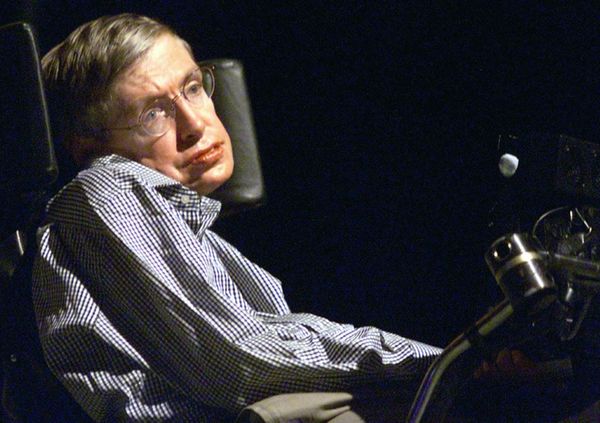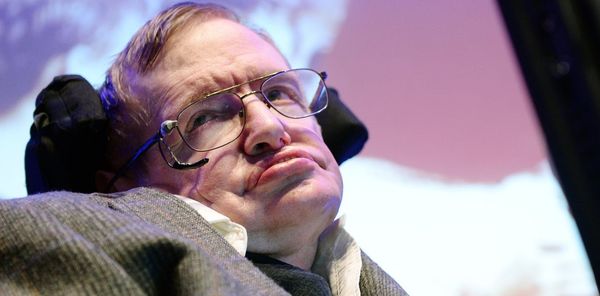
To my mind, Stephen Hawking’s legacy is twofold: he was both a brilliant scientist who came up with some of the most revolutionary ideas of our time and a great communicator who managed to carry the world with him on a remarkable scientific journey. He got people across the world talking and thinking about complex science.
Some of his early work was linked to Einstein’s theory of general relativity, which takes space and time and squashes them together to make what we call a spacetime. If you look at the universe this way you see all sorts of strange phenomena, including black holes. Before Stephen’s work it was thought that nothing could escape a black hole, but his theoretical work led to the theory of Hawking radiation, which allows some radiation to leak from a black hole, enabling them to slowly decay and eventually evaporate.
Stephen also worked on what has been called the Grand Theory of Everything – a single theory that would explain everything in the universe on a small and large scale. In physics, we’ve made great inroads in our understanding our universe. On the very small scale we have quantum mechanics to explain how things work, and on the grand cosmological scale we have general relativity to explain how things operate. But Stephen, with others, was trying to go further to find a theory that linked both these domains. It was a grand challenge, and I cannot think of a better person to take it on.
I always had the feeling that Stephen was working on a higher operating system than the rest of us, and in that respect, he was a champion for us all in the understanding of the universe. We didn’t always understand exactly what his research involved, but boy were we glad he was out there, doing it and making the discoveries.
Part of his early research was on singularities, the conditions we think occurred at the start of the big bang and also exist at the centre of a black hole. This is mind-warping stuff, even as a physicist, because it’s so alien from the everyday world that we live in. Stephen, however, gave us a conduit to enter that world and see what was happening beyond. He took the most obscure stuff out there in the cosmos and made it accessible. As a scientist and a science communicator, he was a great inspiration to me and many other physicists who wanted to join the quest to understand what’s out there in the universe.
I’m so glad Stephen was alive for the first detection of gravitational waves in 2016. These were predicted by Einstein’s theory of general relativity but it took a century for technology to catch up, enabling us to detect them. Gravitational wave detectors are giving us a better understanding of black holes, which are hard to study as not even light can resist their gravitational pull. Now we might have the means of investigating and understanding in more detail some of the concepts that Stephen came up with. I’m glad he knew we had this new tool in our toolbox.
Even now we don’t have the technology to verify some of Stephen’s big ideas. But as with Einstein, and others who are well ahead of their time, I feel we will be referring to his work and legacy for many years to come.
Maggie Aderin-Pocock is a space scientist and research fellow at University College London










